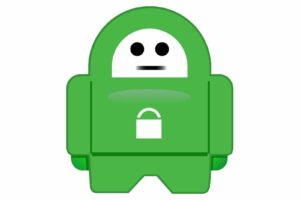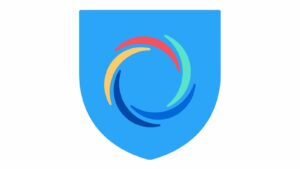The 5 Fastest VPNs Actually Worth Your Money
May 10, 2023 | Share
Internet Speed Guides
| Fastest VPN | Fastest for families | Fastest free VPN |
|---|---|---|
 |  |  |
| ExpressVPN | IPVanish | Hide.me |
| $$ | $ | Free |
| Visit ExpressVPN | Visit IPVanish | Visit Hide.me |
VPNs are great for keeping your internet activity safe—but they often slow down your internet in the process. A VPN is designed to encrypt your data by spoofing your IP address, making it look like you’re using the internet from a different location. That means you have to sign on to a server located hundreds or possibly even thousands of miles away, which understandably sucks up some of your Wi-Fi juice.
Dodgy VPNs slow down your speed even further by throttling your connection, bombarding you with pop-up ads, or even hijacking your bandwidth for their own purposes. (Not cool!) But the VPNs we highlight here don’t reduce internet speeds to dismaying levels. They deliver fast speeds, excellent performance, and great privacy features.
So, take a look and see which of the fastest VPNs will work best for you.
Pro tip:
If you’re curious for more details about how VPNs work, head to the “What is a VPN?” section further down on this page.
Which VPN is fastest?
Based on our research, we consider ExpressVPN the fastest VPN out there. It consistently takes the top scores in internet speed tests and performs excellently when you’re doing bandwidth-intensive tasks like downloading big files or streaming video on a foreign version of Netflix.
ExpressVPN gives you access to over 3,000+ servers—another plus if you’re concerned about speed. The more servers you can choose from, the greater flexibility you get. If one server is too slow because it’s too far away from your home network or bogged down by too many users, you can hop to another that works more efficiently.
ExpressVPN is also excellent thanks to its top-notch security features and privacy policies. It doesn’t keep any logs of your data. And there’s a “kill switch” (available only for desktop, sadly) that will disable your internet if your VPN server disconnects. Sometimes a VPN server can struggle to connect for whatever reason, and a kill switch keeps your activity secret in the event of a technical malfunction.
How do you test a VPN’s speed?
To see how much firepower your VPN is dishing out, download our speed test app to run a quick diagnostic. First, take the speed test with the VPN turned off, so you get a baseline of how much speed your internet delivers in general. Then, switch on the VPN and run the test again. You can see how much your bandwidth is impacted by comparing the difference between the numbers.
You can also see how fast a VPN is by playing games and using Netflix. If your Wi-Fi is buffering more than usual when you’re using Netflix and on the VPN, then you may want to try signing on to a different VPN server or seeking out a new service.
How do you test a VPN’s speed?
To see how much firepower your VPN is dishing out, use our speed test to run a quick diagnostic. First, take the speed test with the VPN turned off, so you get a baseline of how much speed your internet delivers in general. Then, switch on the VPN and run the test again. You can see how much your bandwidth is impacted by comparing the difference between the numbers.
You can also see how fast a VPN is by playing games online and using Netflix. If your Wi-Fi is buffering more than usual when you’re using Netflix and on the VPN, then you may want to try signing on to a different VPN server or seeking out a new service.
Best VPNs for fast internet
| Best for | Service | Price | # of servers | Max devices per subscription | Get it |
|---|---|---|---|---|---|
| Fastest overall | ExpressVPN | $99.95 per 15 mos. ($6.67/mo.) | 3,000+ | 5 | Sign Up |
| Fastest with extra features | Hotspot Shield | $7.99/mo. | 3,200+ | 5 | Sign Up |
| Fastest for downloading and streaming | Private Internet Access | $69.95 per 2 yrs. ($2.69/mo.) | 2,640+ | 10 | Sign Up |
| Fastest for families | IPVanish | $77.99 per yr. ($6.49/mo.) | 1,500+ | Unlimited | Sign up |
| Fastest free service | Hide.me | Free ($129.95 per 2 yrs. for paid version) | 1,700+ | 1 (10 for paid service) | Sign up |
These are some of the fastest VPNs you can find—but each have their merits and their drawbacks. ExpressVPN is truly the fastest of the bunch. In fact, it’s pretty much the best VPN you can get, period, second only to NordVPN in terms of features and performance.
Hotspot Shield is another VPN that’s well known for delivering excellent speeds, especially for intensive activities like gaming and torrenting. Private Internet Access is a fast VPN with some nice side bonuses, including servers for torrenting and an affordable price.
IPVanish maintains quality VPN speeds even as you can hook up unlimited devices on a single account—a generous offer in contrast to the usual five devices that most VPNs allow. Hide.me, meanwhile, is one of the few free VPN services that delivers solid speeds, even though it is more limited overall.
Pro tip:
If you’re interested in more than just speed when it comes to VPN performance, see our best VPNs for 2020 for the lowdown on other features and security measures to think about.
ExpressVPN
-
3,000+ servers in 94 countries
-
Devices: 5 max on one account
-
30-day money-back guarantee
-
Headquarters: British Virgin Islands
Recommended price tier: $99.95 billed every yr. ($8.32/mo.)
As one of the best-designed VPNs on the market, ExpressVPN beats countless other VPNs in speed tests conducted by VPN reviewers and experts. The service lets you stream video and play games online without excess buffering, whether you’re connected to a server in the US or to one as far off as Thailand. And if one server isn’t connecting well, you can always sign up for a different one—there are many, many servers to choose from.
ExpressVPN is also great because it doesn’t log your data, so it keeps no records of your internet usage that might come into unwanted hands in the event of a leak or government subpoena. The only drawback is that it’s a bit more expensive than many other options. But if you require top performance, it’s worth the money.
![]() Pros:
Pros:
- Fastest VPN speeds
- Excellent privacy controls
![]() Cons:
Cons:
- Limitations on kill switch feature
- Higher price than many VPNs
Hotspot Shield
-
3,200+ servers in 80+ countries
-
Devices: 5 max on one account
-
7-day money-back guarantee
-
Headquarters: United States
Recommended price tier: $7.99 per month
Hotspot Shield is another super speedy VPN, rising to the top in both long-distance and short-distance connections in tests conducted by Ookla’s Speedtest.net in 2019. And its consistency goes back a long way, proving useful for activists during protest movements in places like Turkey and Hong Kong since the early 2010s.
The VPN’s $7.99 a month price tag comes with some great extra features, including a password manager, a spam call blocker, and an identity theft protection system—all parts of the Pango subscription service that you get as part of signing up.
However, if you’re looking for premium privacy as well as premium speed, Hotspot Shield may not be ideal since it maintains logs of some user data, including the length of your sessions and how much data you’ve consumed.
![]() Pros:
Pros:
- Tons of extras included with price
- Sleek user interface
![]() Cons:
Cons:
- Limited privacy protections
- Higher price than many VPNs
Pro tip:
Take our How Much Speed Do I Need? Tool to get an idea of your bandwidth requirements as you shop around for a speedy VPN.
Private Internet Access

-
2,640+ servers in 47 countries
-
Devices: 10 max on one account
-
30-day money-back guarantee
-
Headquarters: United States
Private Internet Access doesn’t tout speed as a selling point like some other VPNs do, but it performs with top-tier speed on both short- and long-distance connections, getting excellent ratings from FastestVPNGuide.com. Message board users also report that it maintains excellent speeds and runs smoothly with no disconnects during bandwidth-intensive tasks like downloading and file sharing—something this VPN is particularly known for.
Private Internet Access also has excellent encryption and security protocols. It doesn’t log your data, and it comes with a “kill switch” function, which keeps your identity safe from exposure if a VPN server loses its connection. All in all, it’s a solid VPN that delivers fast service at a price below many of its fanciest competitors.
![]() Pros:
Pros:
- Fast P2P file-sharing capabilities
- Affordable price
![]() Cons:
Cons:
- Fewer bells and whistles compared to some VPNs
- Limited customer support
IPVanish
-
1,300+ servers in 75 countries
-
Devices: Unlimited on one account
-
30-day money-back guarantee
-
Headquarters: United States
Recommended price tier: $77.99 billed every yr. ($6.49/mo.)
IPVanish consistently ranks at the top of the list in many VPN speed tests and gets excellent reviews for the high performance capacity of its servers, both located inside the United States and abroad. Even better, it doesn’t set a limit on the number of devices you can use on one account, so using this VPN is a great way to save some dough if you want something that can serve a wide range of devices or a big family.
But is it good for privacy too? IPVanish came into some controversy in 2018 after accusations surfaced on Reddit that it was logging users’ data, leaving them vulnerable to potential exposure by security breaches and government server seizures. However, the CEO of IPVanish’s parent company at the time insisted that no logs were being kept when it acquired IPVanish, and to this day IPVanish publicly maintains a no-logging policy.
![]() Pros:
Pros:
- Unlimited devices on accounts
- Live chat support
![]() Cons:
Cons:
- Complicated privacy policy
- Cumbersome user controls
Pro tip:
VPNs frequently offer limited-time offers to entice customers. Before signing up for a service, consider looking around at a few options to see if you can get a nicer price.
Hide.me
-
1,700+ servers in 72 locations (5 servers only for free service)
-
Devices: 10 on paid service, 1 on free service
-
30-day money-back guarantee
-
Headquarters: United States
Recommended price tier: Free version
We generally advise against using free VPNs. They tend to be a lot slower than paid VPN services, loaded up with ads and other junk. And the most unscrupulous ones do sketchy things like sell your data to third parties as a way to generate revenue. As they say—everything comes with a price.
But . . . Hide.me’s free VPN option ain’t half bad. It performed way better than Windscribe (our other preferred free VPN) in our own battery of speed tests and it’s super easy to use. You don’t even need to put in a credit card to get started.
There are some definite drawbacks, though. You’ll notice a significant drop in your internet speed after you’ve signed on to one of its servers. You can pick from only five server locations if you’re on the free service, you get a monthly data cap of just 10 GB, and you can use only one device at a time. This will work in a pinch if you need a VPN every once in a while, but a paid service is still your better bet for more heavy-duty use.
![]() Pros:
Pros:
- Easy account setup with no credit card needed
- Simple user controls
![]() Cons:
Cons:
- Small cap on data use for free service
- Fewer servers than many VPNs
Pro tip:
VPNs frequently offer limited-time offers to entice customers. Before signing up for a service, consider looking around at a few options to see if you can get a nicer price.
What is a VPN?
VPN means “virtual private network.” It’s a service that enhances your anonymity and encrypts your data as you go online. To use a VPN, you log on to a server hosted by the VPN service. Your IP address is then “spoofed,” giving the appearance that you’re using the internet with a different IP address and location.
VPNs work as a kind of invisibility cloak, letting you surf the internet without worrying about public exposure. They keep your data safe from snooping internet service providers, governments, and hackers. They also let you get around censorship and firewalls, providing access to geo-specific streaming platforms and websites that have been blocked by authorities.
Our verdict—ExpressVPN is fast and secure
We think you should go for ExpressVPN if you’re looking for a fast VPN that won’t slow your internet down. Its servers are efficient and reliable, and there are tons to choose from. Not only that, but ExpressVPN also maintains excellent security standards, so you won’t have to worry about sacrificing your privacy or taking unnecessary risks in exchange for slightly faster speeds.
It’s a bit pricier than other VPNs, though, so we also recommend Private Internet Access as a more affordable option—it will also deliver top-notch performance and won’t hamper your internet speeds too much.
FAQ about fastest VPNs
Does a VPN increase internet speed?
Does a VPN slow internet speed?
Does a VPN help with buffering?
How do you make a VPN faster?
What is the fastest VPN?
Author - Peter Holslin
Peter Holslin has more than a decade of experience working as a writer and freelance journalist. He graduated with a BA in liberal arts and journalism from New York City’s The New School University in 2008 and went on to contribute to publications like Rolling Stone, VICE, BuzzFeed, and countless others. At HighSpeedInternet.com, he focuses on covering 5G, nerding out about frequency bands and virtual RAN, and producing reviews on emerging services like 5G home internet. He also writes about internet providers and packages, hotspots, VPNs, and Wi-Fi troubleshooting.
Editor - Cara Haynes
Cara Haynes has been editing and writing in the digital space for seven years, and she's edited all things internet for HighSpeedInternet.com for five years. She graduated with a BA in English and a minor in editing from Brigham Young University. When she's not editing, she makes tech accessible through her freelance writing for brands like Pluralsight. She believes no one should feel lost in internet land and that a good internet connection significantly extends your life span.








